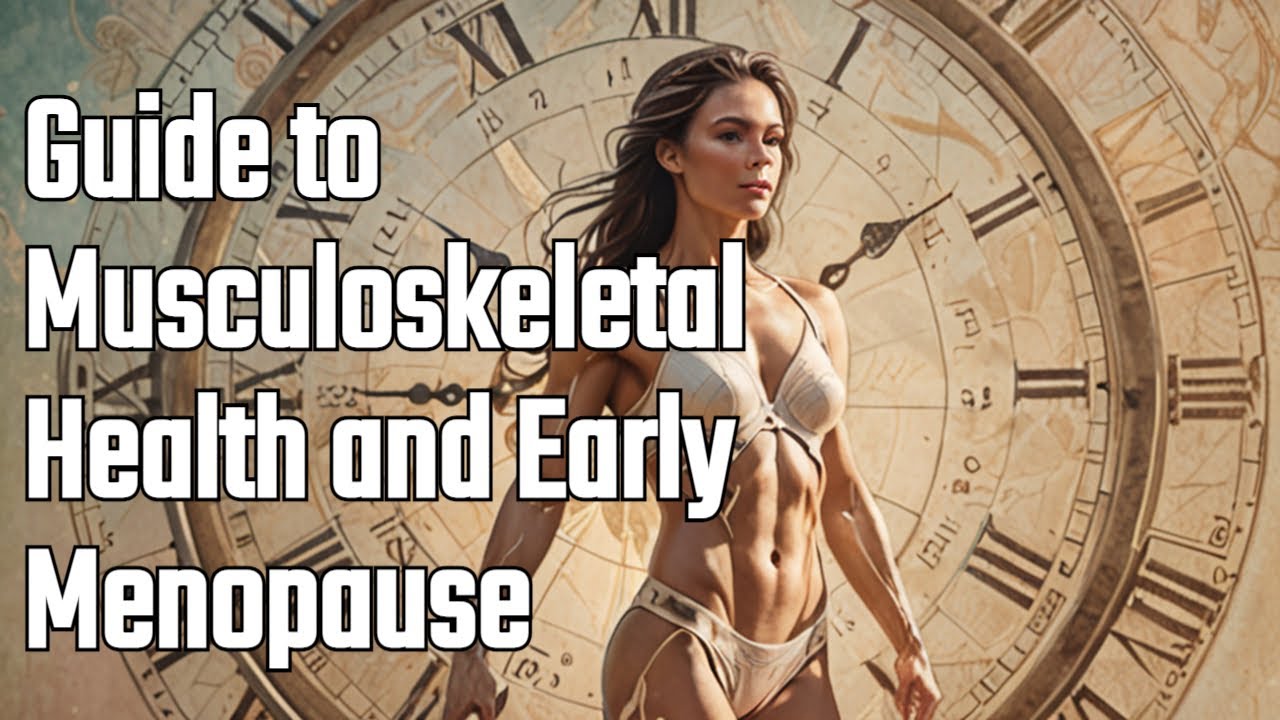**Title: The Comprehensive Guide to Musculoskeletal Health and Early Menopause**
**Introduction**
In a groundbreaking new study, researchers have found a strong link between musculoskeletal health and early menopause. This comprehensive guide aims to provide women with the information they need to protect their bones and joints during this critical period of hormonal change.
**What is Early Menopause?**
Early menopause, also known as premature ovarian failure, occurs when a woman’s ovaries stop producing eggs before the age of 40. This can lead to a range of symptoms, including hot flashes, night sweats, mood swings, and decreased libido. In addition to these well-known symptoms, early menopause can also have a significant impact on musculoskeletal health.
**The Link Between Early Menopause and Musculoskeletal Health**
Recent research has shown that women who experience early menopause are at a higher risk of developing osteoporosis and other musculoskeletal conditions. This is because estrogen, the hormone responsible for regulating bone density, decreases significantly during menopause. As a result, women may experience a rapid loss of bone mass, leading to an increased risk of fractures and other bone-related issues.
**Protecting Your Musculoskeletal Health During Early Menopause**
Fortunately, there are steps that women can take to protect their musculoskeletal health during early menopause. One of the most important things to do is to ensure that you are getting enough calcium and vitamin D in your diet. These nutrients are essential for maintaining strong and healthy bones, and can help to reduce the risk of osteoporosis.
In addition to a healthy diet, regular exercise is also crucial for maintaining musculoskeletal health during early menopause. Weight-bearing exercises, such as walking, jogging, and weightlifting, can help to strengthen bones and prevent bone loss. It is also important to incorporate flexibility and balance exercises into your routine to help prevent falls and fractures.
**Seeking Professional Help**
If you are experiencing symptoms of early menopause or are concerned about your musculoskeletal health, it is important to seek help from a healthcare provider. A doctor can perform tests to assess your bone density and overall musculoskeletal health, and can recommend treatment options to help prevent further damage.
**Conclusion**
In conclusion, early menopause can have a significant impact on musculoskeletal health, increasing the risk of osteoporosis and other bone-related conditions. However, by taking steps to protect your bones and joints through a healthy diet, regular exercise, and professional guidance, you can reduce your risk of developing these issues. Remember, your musculoskeletal health is an important part of your overall well-being, so be sure to prioritize it during this critical period of hormonal change..



Leave a Reply